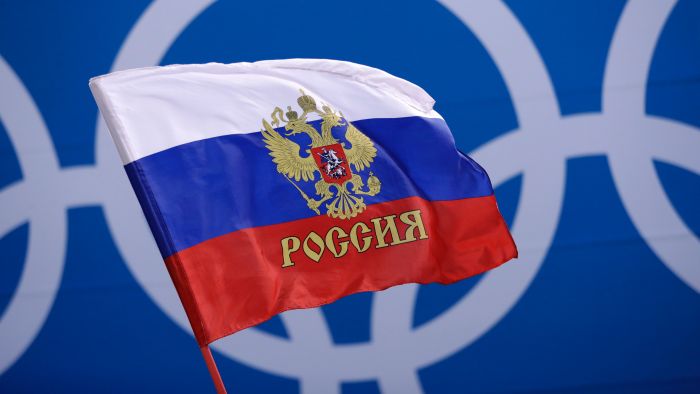The Court of Arbitration for Sport (CAS) court has upheld doping sanctions that will prevent Russian athletes from competing at major international events under the country’s flag or name but halved the period of the ban to two from four years.
Key points:
- Russian athletes will not be allowed to use the national flag or anthem at Olympic or world championship events
- The two-year ban against Russia is less than the penalty recommended by the World Anti-Doping Agency
- The country been embroiled in doping scandals since a 2015 report uncovered systematic doping in Russian athletics
Russian athletes will still be allowed to compete at next year’s Tokyo Olympics and the 2022 Winter Games in Beijing, as well as world championships including the 2022 World Cup in Qatar, if they are not implicated in doping or covering up positive tests.
While the ruling states the Russian flag nor national anthem will be used the name Russia can be retained on uniforms if the words “Neutral Athlete” or “Neutral Team” have equal prominence, the court said.
The CAS said the sanctions, which also bar Russia from hosting or bidding for major sporting events during a two-year period, would come into force on Thursday and end on December 16, 2022.
Russian Government officials or representatives will be banned from attending events such at the Olympics and world championships in major sports for a two-year period.
Russians will also not be able to be appointed to or sit on committees or serve as board members at organisations that must abide by the World Anti-Doping Agency’s (WADA) code.
WADA had accused Russia of planting fake evidence and of deleting files linked to positive doping tests that could have helped identify drug cheats.
The punishments are less than the four-year ban WADA had proposed.
Russian authorities, which said before the ruling that they hoped the court would fully take the country’s interests into account, said the inconsistencies in the data were purely technical and not the result of tampering.
Russia, which has tried to showcase itself as a global sports power, has been embroiled in doping scandals since a 2015 report commissioned by WADA found evidence of mass doping in Russian athletics.
Its doping woes have grown since, with many of the nation’s athletes sidelined from the past two Olympics and the country stripped of its flag altogether at the 2019 Pyeongchang Winter Games as punishment for state-sponsored doping cover-ups at the 2014 Sochi Games.
“For too long, Russian doping has detracted from clean sport,” then-WADA president Craig Reedie said in December last year.
“Russia was afforded every opportunity to get its house in order and re-join the global anti-doping community for the good of its athletes and of the integrity of sport, but it chose instead to continue in its stance of deception and denial.”
Russia has had more Olympic and world championship medals stripped from its athletes than any other country.
In October, biathlete Evgeny Ustyugov became the latest Russian athlete to be stripped of his medals.
The CAS’s anti-doping division saw medals he won at the Vancouver and Sochi Winter Olympics taken away.
ABC/wires







